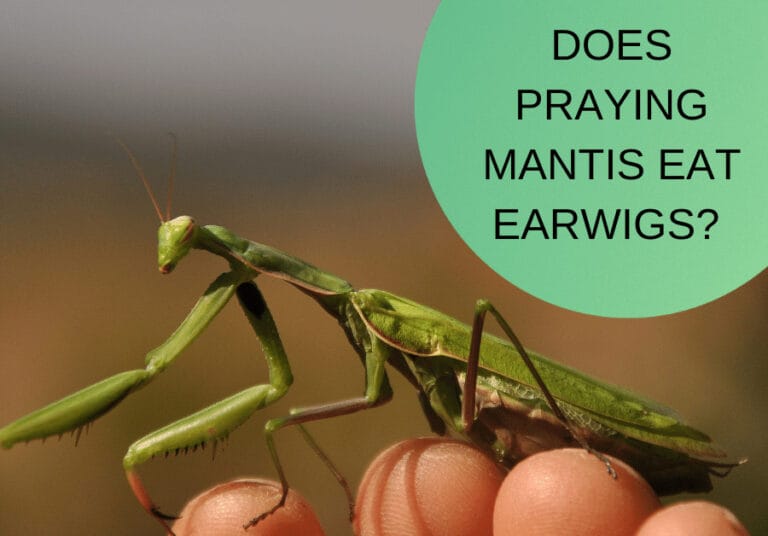
It seems like the beginning when we open the first seed package of the year and let the tiny seeds drip from our fingers into the warm garden soil. But once those seeds are planted, their journey – often a protracted and challenging one – is over. They probably traveled hundreds or maybe thousands of kilometers to reach our gardens.
For home gardens, very few seed companies manufacture all of their seed. Instead, they purchase it from seed farms that grow seed in production regions and sell it wholesale, seed breeders who develop seed from their introductions, contract growers who produce seed as needed for breeders or commercial seed companies, or other sources.
Let's learn more about how seed companies get their seeds, what seed farms are and their goals, what some of the biggest seed providers are, and what that means for the seed industry.
Table of Contents
Where Do Seed Companies Get Their Seeds?
A multimillion-dollar industry that utilizes cultivating facilities and growing places all over the globe is the production of seed. While significant, specialized farmers generate most of the seed, small, monoculture growers also produce a considerable quantity of it.
The bigger businesses provide seed to wholesalers and commercial resellers alike. The wholesalers and resellers provide seed for companies that pack it into packets and resale it to amateur gardeners and businesses that produce vegetables and fruits.
A wide variety of seeds, from highly advanced F1 hybrids to open-pollinated wild species, are produced by seed farms. They have significant research resources to generate genetically enhanced plants with excellent uniformity and aesthetic appeal.
Disease resistance, increased yields, a dwarf habit, and brilliant or novel colors are a few examples of these traits.
Plant cultivars are often marketed under the business's name. They are prohibited from being cultivated for seed production by others by international regulations since these advancements are frequently highly guarded to prevent them from being used by other manufacturers.
What Is A Seed Farm?
Typically, seed farmers nurture their crops to generate the most high-quality quantity of seed possible to market to other growers and farmers.
There are various methods to do this.
This often requires leaving the product on the plant until it is overripe since the seeds of many species do not emerge until the fruit it is enclosed in has passed its peak.
For certain plants, such as tomatoes, cucumbers, and cantaloupes, a little fermentation is necessary to make the seeds viable.
Bees or other pollinators are frequently introduced to assist with pollination, even though certain crops may be physically pollinated using a little brush. There are several different trade secrets.
What Do Seed Farms Do?
Each seed farm aims to cultivate seeds that germinate well and generate abundant harvests. Crop quality and vitality may be even more crucial for seed farmers than food producers since spindly crops generate tiny amounts of weak, deformed seed.
Sanitation and “biosecurity” – methods to avoid the entry of undesired organisms to the farm – are crucial since certain plant diseases are spread via seeds.
How Big Is The Seed Industry?
Seed growers provide plant material to farmers who cultivate ornamental and food plants, cereal and pulse producers, and those who raise livestock and poultry. Except for fruits and nuts, most crops are propagated by sowing seeds.
Large agribusinesses dominate the $58 billion worldwide seed industry, where patented GMO seeds are the primary product. However, small, independent seed farmers and co-ops are increasing.
What Are The Biggest Seed Companies In The World?
For the time being, four major companies—BASF, Bayer/Monsanto, Coteva Agriscience, and ChemChina-Syngenta—control more than two-thirds of the global seed and pesticide markets.
In 2019, only these four seed companies controlled 60% of the world's proprietary seed sales. Those versed in economics argue the sector has lost its advantage, meaning farmers will have fewer options and pay more in the future.
Concerns have also been raised that the world's food supply might be jeopardized because of the corporations' desire to protect their intellectual property at the expense of public researchers, growers, and independent breeders.
Faced with these mergers and acquisitions, activists have urged stricter antitrust laws and advocated for a United Nations Treaty on Competition to implement reforms on a global scale.
What Are Seed Patents?
Plants bred by hybridization or other novel methods are protected works of intellectual property that their creators may copyright.
Farmers may save some of their crop's seed to replant in the future under some patents, although this is not always the case, and in any event, only the patent's owner is allowed to harvest and sell patented seed.
To recuperate the costs associated with growing a new and improved variety, patent holders may claim ownership over that variety and charge royalties to anybody who wants to use it. Patents are placed on many popular contemporary seed types, including those suitable for organic agriculture.
However, due to several high-profile incidents in which bioengineering corporations sued farmers for patent infringement, the term is most often linked with GMO crops.
After 20 years, patents lapse, and the genetic code is considered “in the commons.” Because of their advanced age, it is rare to come across patented heritage seeds.
What Regulations Are There On Seeds?
State authorities are required to examine certain kinds of seed to look for noxious weeds, which might unintentionally spread if they are mixed in with quantities of bulk seed.
Additionally, many seed producers choose to get their seed “certified,” which entails that a third party (usually a government entity or regional seed organization) examines and tests each batch to guarantee that it is proper to type, weed-free, and has a high seedling growth.
While some pay extra for certified seed, not all seed firms demand this step.
In conclusion, you rarely find a seed company that makes all of its seed specifically for home gardeners.
Instead, they obtain it from contract growers, who generate seed as required for breeders or commercial seed businesses, seed breeders, who create seed from their introductions, or other sources in producing zones.
Are There Any Alternatives? Yes!
Some seed companies specialize in preserving and offering non-GMO seeds that have actually been provided through generations of farmers. These seeds are often open-pollinated, implying that they will produce plants that are true to their parent type and can be conserved and replanted from one year to the next.
Heirloom Seeds
Heirloom seeds are usually given within a family or community and are typically numerous decades or centuries old. They are known for their unique flavor, color, and other attributes that have actually been adapted to particular climates and growing conditions.
Traditional Seeds
Traditional seeds are cultivars that have been developed and utilized by farmers for many years but may not have been passed down within a particular family or community. They are also open-pollinated and adjusted to different areas.
Seed companies focus on preserving these heirloom and traditional seed varieties by keeping a stock of the seeds.
Advantages: planting heirloom and traditional seeds provide variety, flavor, and other attributes that are not present in modern-day hybridized seed varieties. They likewise may have a much better versatility to the regional environment and other environmental conditions.
Difficulties: heirloom and traditional seed varieties might be more difficult to grow and may not have the same illness or pest resistance as hybrid varieties. They likewise might not be as productive in terms of yield.
Looking for a great seed company? Check out Seeds Now
Have you ever wondered if you can mail seeds in a regular envelope? If so, read this article.
Conclusion
In conclusion, seed companies get the seeds they handle from various resources. Some seeds are collected naturally, while others are grown on farms and collected through seed exchange programs. Many seed companies also work with plant breeders and genetic researchers to develop new and improved varieties of plants. Some seed companies may also purchase seeds on the open market.



